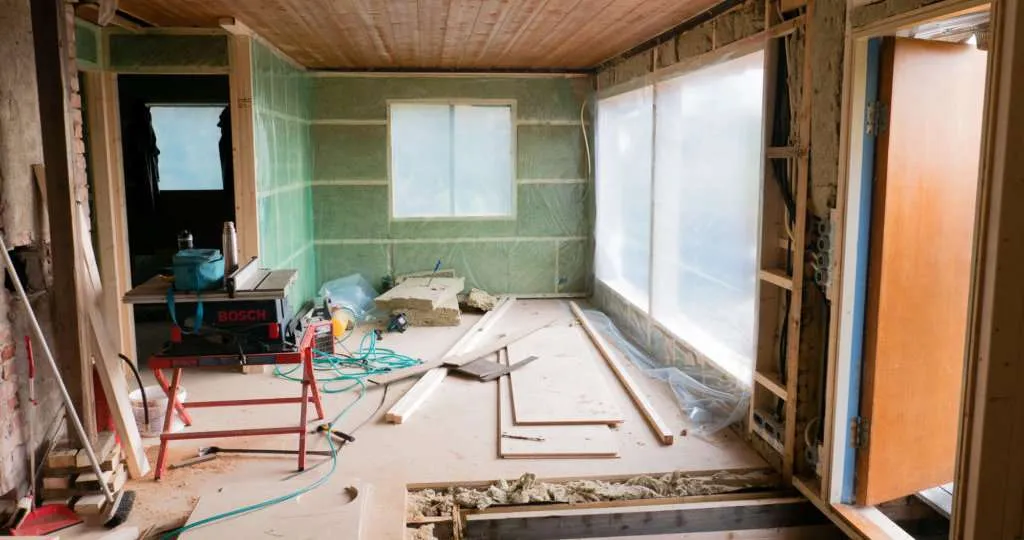Functionality and cost-efficiency are more or less the goal of property construction that at times the importance of proper insulation can be underestimated.

Yet, residential building insulation plays a crucial role in not only providing comfort to occupants but also in improving energy efficiency, sustainability, and long-term cost savings.
In this article, we will explore the multifaceted benefits of residential building insulation and why it should be a top priority for every residential property owner and developer.
Enhanced Energy Efficiency
One of the primary benefits of insulating a building is its ability to enhance energy efficiency. Insulation acts as a thermal barrier, preventing heat transfer between the interior and exterior of a building.
By limiting the flow of heat, insulation keeps the building warmer in the winter and cooler in the summer, reducing the need for excessive heating or cooling. This results in significant energy savings, lower utility bills, and a reduced carbon footprint.
Modern insulation materials, such as fiberglass, foam board, and spray foam, are designed to provide high levels of thermal resistance (R-value). The higher the R-value, the better the insulation’s performance in preventing heat transfer.
This means that residential building insulation can effectively regulate indoor temperatures, ensuring a comfortable environment for occupants year-round.
Read Also:
Cost Savings
Building insulation not only reduces energy consumption but also translates into substantial cost savings over time. While the initial investment in insulation may seem significant, the long-term benefits far outweigh the costs.
Energy-efficient buildings with proper insulation require less heating and cooling, leading to lower utility bills. These cost savings can quickly offset the expense of insulation installation.
Additionally, insulation helps extend the lifespan of HVAC (Heating, Ventilation, and Air Conditioning) systems. When a building is well-insulated, HVAC systems do not have to work as hard to maintain the desired temperature, resulting in reduced wear and tear.
This leads to lower maintenance and repair costs, further contributing to overall cost savings for residential and residential property owners.
Improved Comfort and Productivity
Properly insulated residential buildings offer a more comfortable and productive environment for occupants. Consistent indoor temperatures and reduced drafts create a pleasant atmosphere that promotes tenants’ well-being and productivity.
In contrast, poorly insulated buildings can lead to temperature fluctuations, discomfort, and distraction, which can hinder comfort.
Furthermore, investing in building insulation like Thermacote products with high-performance thermal barriers can help protect from harsh environmental conditions.
Insulation also acts as a barrier against moisture infiltration, preventing issues like mold growth and indoor air quality problems.
Noise Cancellation
Residential building insulation also plays a pivotal role in acoustic comfort. In noisy urban environments, soundproofing is essential for creating a peaceful and productive workspace.
Insulation materials with sound-absorbing properties can significantly reduce noise pollution from both inside and outside the building.
In addition to providing a quiet atmosphere within the building, acoustic insulation enhances privacy by preventing the transmission of sound between rooms or offices.
This is particularly important in residential spaces where confidentiality is paramount, such as medical offices, law firms, or financial institutions.
Sustainability and Environmental Benefits
As sustainability becomes a central focus in modern construction, residential building insulation contributes to environmentally friendly practices.
In this regard, insulation helps reduce greenhouse gas emissions by lowering energy consumption. Energy-efficient buildings have a smaller carbon footprint, making them more environmentally responsible.
Many insulation materials are now being manufactured with recycled or eco-friendly components, further reducing their environmental impact.
Additionally, by reducing the need for constant heating and cooling, insulation helps conserve natural resources and reduce the strain on power grids during peak energy demand periods.
Compliance with Building Codes and Standards
Proper insulation is essential for complying with building codes and standards. Regulatory authorities often mandate specific insulation requirements to ensure the safety and well-being of building occupants. Non-compliance can result in costly fines and delays in project completion.
Moreover, adhering to energy codes and green building certifications, such as LEED (Leadership in Energy and Environmental Design), may require the implementation of energy-efficient insulation systems.
Meeting these standards not only ensures legal compliance but also enhances the marketability and value of a residential property.
Wrapping up
In a nutshell, the benefits of proper insulation cannot be overstated. Whether you plan on constructing a new residential property or commercial property, investing in high-quality insulation is a wise decision that pays dividends in the form of reduced operating costs, increased property value, and a more comfortable, productive environment for occupants.
As sustainability and energy efficiency continue to gain importance in the commercial and residential sectors, insulation will play an even more significant role in shaping the buildings of the future.









